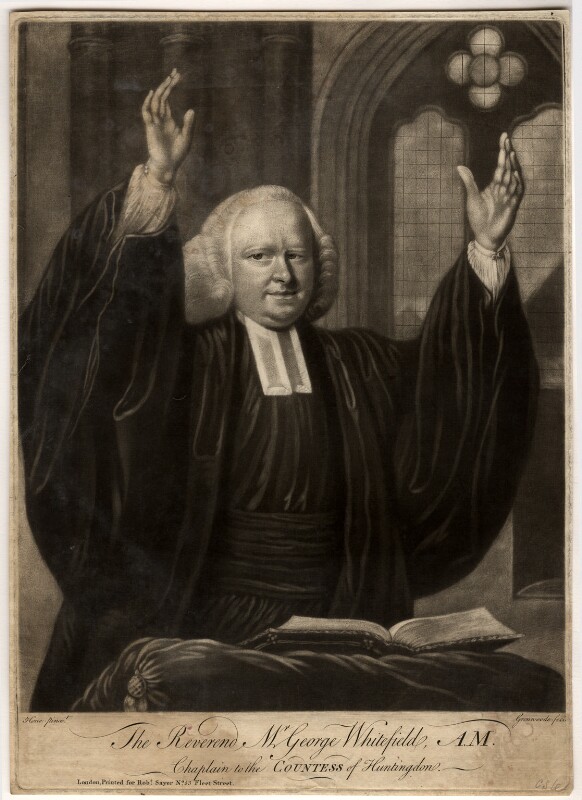
First Great Awakening
By Lynne Tagawa
Somewhere in the back of our minds, a fuzzy schoolhouse memory, we remember something about a great awakening. A move of God, sometime in our history. Something so dramatic that even secular textbooks mention it.
What was it, when was it, and what impact did it have upon our young nation?
Even better, what would it have been like to live during that time? This question I try to answer in my book, The Shenandoah Road: A Novel of the Great Awakening. (see below)
I learned a lot doing the research for this novel. The Great Awakening was not a single event. You can’t nail it down to a specific year and place. Rumblings of revival were taking place all through the 1730s, in various churches in New England. The minister Jonathan Edwards preached a sermon titled, “Sinners in the Hands of an Angry God,” and many of the members of his congregation cried out. They suddenly realized they weren’t actually Christians, and their souls were in danger. They repented and believed.
For those who were already genuinely converted their lives were changed too. It was as if they’d woken from sleep. A great refreshing and impetus to godly living swept many small churches in New England.
Then George Whitefield came to the colonies from Britain. Now, Whitefield was a Church of England minister. Many such ministers, in Britain or here in the colonies, were no longer preaching the gospel. They no longer preached justification by faith or salvation by grace alone, the great doctrinal hallmarks of the Reformation.
When Whitefield preached the new birth, from Massachusetts to Georgia, it was strange and unwelcome language to these ministers. They shut him out of their pulpits.
Whitefield was an interesting man. In some ways, he was traditional. He maintained his adherence to the Church of England and the Thirty-Nine Articles (their confession of faith) to the very end. Pictures of him reveal a man in a black garment, the typical ministerial clothing. In doctrinal disputes, he referred to the Articles.
But to the religious scene on both sides of the Atlantic, Whitefield was a radical. Denied access to Church of England pulpits, he preached anywhere he could. Even in open fields.
Listening to him, people were moved. And converted. Sometimes in large numbers.
Benjamin Franklin was not a Christian, but he maintained a friendship with Whitefield. He was amazed at the reach of the man’s voice when preaching outdoors. Once, when Whitefield was preaching in Philadelphia, Franklin did an experiment. He walked away from the crowd to see how far he could still hear. He calculated that 20,000 people would be able to hear the sermon.
This in an age before microphones.
The revival spawned other preachers, some of whom were not as solid as Whitefield. Various godly men had doubts about the whole thing. Jonathan Edwards wrote a detailed treatise on “Religious Affections” that is available in print today. It’s a great resource in judging the emotions that can result in a time of revival, whether they are of God or not.
Whitefield did not have a strong physical constitution. He may have had asthma. Or perhaps it was just all the preaching. He was often unwell. But he wanted to “wear out, not rust out.”
He preached his last sermon in 1770, just after the Boston Massacre. His body was lovingly interred in a church crypt in Newburyport, Massachusetts, where he died. Several years later, a militia company opened the crypt, desiring a token of his clothing to use as good luck charms.
George Whitefield was beloved in the colonies. His was a household name. Americans had their own ministers, their own parishes, but Whitefield belonged to them all.
And the preaching of the gospel changed history. We can’t know how things might have been different during the period of the revolution if this great move of God had not happened. But we all know that much of the argument—and justification—of the rebellion against tyranny was couched in theological terms. Plus, men like Washington and Knox spoke of heaven as their only hope in their fight against Great Britain’s forces, the greatest military on earth.
When I decided to write about the Great Awakening of the 1740s, I had an eye on the Revolution. The Shenandoah Road is the first of a trilogy that includes the theological issues of the eighteenth century, concluding with a book set during the Revolution, A Fallen Sparrow.
Blurb: The Shenandoah Road:
John Russell’s heart aches from the loss of his wife, but the Shenandoah Valley frontiersman needs to marry again for his daughter’s sake. At first he believes he has found the right young woman, but his faith falters when time reveals she isn’t quite what she seemed. Can he truly love her?
Unlike her disgraced sister, Abigail Williams obeys the Commandments. At least, she thinks herself a Christian until a buckskin-clad newcomer courts her. He treats her kindly but also introduces her to a sermon by the controversial preacher, George Whitefield.
Her self-righteousness is shattered, and she wonders about their relationship. If she confesses her lack of faith, will John continue to love her?
Excerpt:
May 1744
John Russell knelt on the grass growing over the grave. The small hickory cross had survived the winter. And so had her name.
His wife’s name.
Janet Russell (1719-1742)
He had spent hours on the little cross, finding the best wood, hand carving it, engraving it, and rubbing linseed oil into it again and again.
Still, it would not endure the elements forever. Wood never did. But her soul was safe with God, and though he had grieved long and hard, his peace was real, too. The peace that went beyond all understanding.
Author Bio: Lynne Tagawa is a wife, mother, and grandma to five sweethearts. She’s an educator, editor, and author of an eighteenth-century historical fiction series, the Russells. She loves to include gospel truth in her stories. The Shenandoah Road, first in the series, was a Selah Awards finalist.
Lynne loves good coffee and sugar-free treats. She and her husband live in South Texas.
Connect: https://www.lynnetagawa.com

Buy link for Shenandoah: https://amzn.to/2XVm0kA
Audiobook: https://adbl.co/3955K5l


7 thoughts on “First Great Awakening”
Great article on George Whitefield. I’m partial to the 18th century too.
I admire the fact that he followed God’s calling despite the fact that some ministers of the day and others thought he was a radical. He had a heart for the Lord and a love for his people, and he poured his energy, time, and strength into his calling.
THIS IS WONDERFUL REMINDER THAT ONE GOD BELIEVING, SINCERE PERSON CAN MAKE A DIFFERENCE. MAY WE SEARCH OUR HEATS AND PRAY A PRAYER FROM OUR HEART TO THE HEAVENLY FATHER. A PRAYER FOR A GREAT REVIVAL IN AMERICA.
That is so true. We too often forget that one God-believing person dedicated to following the Lord can make a difference. Too often we focus on our limitations, instead of focusing on Him, for whom all things are possible. I pray for hearts all across this land to turn to the Lord.
Thank you, Sherry. Interesting.
Thank you for stopping by Kathy:)
I found this article quite fascinating. Thank you, Sherry, for hosting Lynne, for sharing. I have read The Shenandoah Road and thoroughly enjoyed it.
Comments are closed.